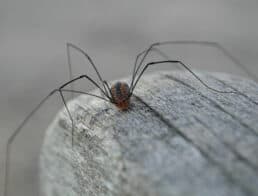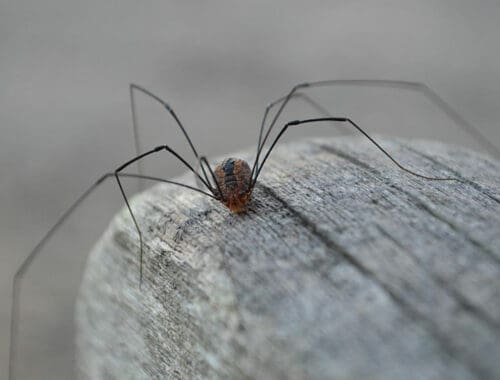Do you love cats but are unsure if you’re allergic to them? You’re not alone – millions of people are allergic to cats, but that doesn’t mean you can’t enjoy the companionship of a feline friend. In this blog post, we’ll answer the question “are cats hypoallergenic?”
The answer is no, there are no cats that are completely hypoallergenic. In this article, we’ll explain in more detail and also provide some tips on how to reduce your chances of developing an allergy. We’ll also discuss what to do if you already have an allergy to cats and how to treat an attack if it happens.
What Causes Cat Allergies?
Cat allergies are caused by an immune system reaction to a protein found in cats’ saliva and skin. This protein is spread through the cat’s fur when it licks itself and can be transferred to humans when they pet the cat or come into contact with its saliva and fur.
People with allergies to cats may also be allergic to other animals such as dogs, horses, and rabbits. They may also be allergic to pollen, dust mites, or mold.

Are All Cats Hypoallergenic?
There is no such thing as a completely hypoallergenic cat, but some breeds produce fewer allergens than others. The Siberian and Sphynx breeds are two of the most popular hypoallergenic cats.
However, it’s important to remember that all cats produce some allergens, so even if you’re allergic to cats, you may be able to find one that doesn’t trigger your symptoms too badly.
Least Allergy-Friendly Cat Breeds
These cat breeds cause allergy sufferers the most trouble and should be avoided in the case of a severe allergy:
- Persian
- British Shorthair
- Siamese
- Manx
- Birman
- Ragdoll
- Russian Blue
Most Allergy-Friendly Cat Breeds
These cat breeds are not 100% hypoallergenic, but they tend to cause allergy sufferers the least amount of symptoms.
- Sphynx
- Siamese
- Peterbald
- Devon Rex
- Cornish Rex
- Russian Blue
- Balinese
What Are The Symptoms of Cat Allergies?
The most common symptoms of cat allergies are sneezing, runny nose, watery eyes, and itching. People with allergies to cats may also experience more severe reactions such as difficulty breathing, hives, or swelling of the face and throat. These reactions are rarer but can be life-threatening. If you experience any of these symptoms after coming into contact with a cat, seek medical help immediately.
How Do I Find Out If I’m Allergic To Cats?
If you think you might be allergic to cats but are not sure, see an allergist for testing.
Allergists can test for allergies by doing a skin prick test or a blood test. A skin prick test involves putting a small amount of allergen under the skin on the arm and watching for a reaction. A blood test measures the level of antibodies to the allergen in the blood. Both tests are generally reliable, but skin prick tests may be more accurate.
If you’re considering getting a cat, try spending time with a friend’s cat first to see if you have a reaction.
Is There A Cure For Cat Allergies?
If you’re allergic to cats, there’s no cure, but there are ways to reduce your symptoms and make your home more comfortable for both you and your pet. Read on to learn more about how to reduce your chances of developing an allergy to cats and what to do if you already have one.

Can You Reduce Your Chances Of Developing An Allergy To Cats?
There is no guaranteed way to prevent allergies, but there are some things you can do that may help reduce your chances of developing an allergy to cats or other animals.
Are Cat Allergies Dangerous?
While cat allergies are not usually dangerous, they can cause severe reactions in some people. If you have an allergy to cats and experience symptoms such as difficulty breathing, hives, or swelling of the face or throat, seek medical help immediately.
Tips for Reducing Cat Allergies
- Change your diet – some people find that taking a daily supplement of omega-three fatty acids helps to reduce their allergic reactions.
- Use a HEPA filter vacuum cleaner when you clean your home – this will help to remove any allergens that may be floating in the air.
- Wash your hands after petting any cats, even if they’re hypoallergenic breeds. Washing your hands regularly is one of the best ways to prevent allergies, as it removes any allergens that may have been transferred from the cat’s fur.
If you think you might be allergic to cats but want to adopt one anyway, there are some things you can do to make your home more comfortable for both you and your pet.
How Many People Die From Cat Allergies Each Year?
There is no definitive answer to this question as it is difficult to determine how many people die from cat allergies each year. However, it is estimated that the number of people who die from cat allergies each year is very low. In general, allergies are not considered to be a deadly condition; however, they can cause severe reactions in some people.
Can I Randomly Develop a Cat Allergy?
Yes, you can develop an allergy to cats at any time in your life. However, it is more common to develop allergies in childhood or early adulthood. If you have never been allergic to cats before but suddenly start experiencing symptoms, it’s important to see an allergist for testing.
Do Any Medications Help with Cat Allergies?
There are a few over-the-counter medications that can help to relieve the symptoms of cat allergies.
- Antihistamines: Antihistamines can help to reduce sneezing, runny nose, and itching.
- Nasal Sprays: Saline or corticosteroid nasal sprays can also be helpful in reducing symptoms.
- EpiPens: EpiPens are a type of emergency medication that can be used to treat severe allergic reactions.
- Neti Pot – this is a device that helps to flush allergens out of your nasal passages.
If you’re experiencing severe symptoms, you may need to see a doctor for prescription medication.
Severe reactions such as difficulty breathing should be treated immediately – if you experience these symptoms, call 911 or go to the nearest emergency room.

Will Allergy Shots Cure My Cat Allergy?
Allergy shots, also called immunotherapy, are a long-term treatment for allergies. They work by slowly exposing you to larger and larger amounts of the allergen, which helps your body build up immunity to it.
How Often Do I Have To Take Allergy Shots?
The shots are usually given once a week for several months, and then the interval is gradually increased to once every few weeks or months. It can take up to three years for the full effect of the allergy shots to be reached.
Allergy shots are not a cure-all, but they can be an effective way to reduce your symptoms and make it easier to live with a cat allergy.
What Should I Do If I Have An Allergy Attack?
If you have a mild allergy attack, you can try using over-the-counter medication to relieve your symptoms. If your symptoms are more severe, you may need to see a doctor for prescription medication.
In the case of a severe reaction, such as difficulty breathing, it is important to seek medical help immediately. Do not attempt to treat these symptoms on your own — call 911 or go to the nearest emergency room.
By following these guidelines, you should be able to safely treat an allergy attack. Remember, if you experience any severe symptoms, seek medical help immediately.
Will My Allergies Go Away On Their Own?
In some cases, people will outgrow their allergies. This is more common in children than adults, but it is possible for anyone to develop or lose an allergy at any time in their life.
If you’re hoping your allergies will go away on their own, the best thing you can do is to avoid exposure to the allergen as much as possible. This means keeping your distance from cats and taking steps to reduce your exposure to allergens in your home.
Will I Pass My Cat Allergies on to My Children?
If you have cat allergies, there is a chance that your children will also be allergic to cats. However, it’s not possible to predict whether they will develop allergies.
The best way to reduce the chances of your children developing allergies is to take steps to reduce their exposure to allergens. This means keeping your distance from cats and taking steps to reduce your exposure to allergens in your home.
Are Their Home Improvements I Can Make To Reduce Allergens?
There are a few home improvements you can make to reduce allergens:
- Have your ducts and vents cleaned
- Install a whole-house air filter
- Change your heating and air conditioning filters regularly
- Use a HEPA filter vacuum cleaner
- Replace carpeting with hardwood floors
- Use allergy-proof covers on your mattress and pillows

Does Shaving a Cat Reduce Allergens?
Shaving a cat will not reduce allergens. In fact, it may actually increase your exposure to allergens because it can release more of the allergen protein into the air.
The best way to reduce your exposure to allergens is to avoid contact with cats as much as possible. If you must be around cats, take steps to reduce your exposure to allergens, such as keeping your distance and washing your hands regularly.
The Bottom Line: If I Have Allergies, Can I Still Keep A Cat As A Pet?
Yes, you can still keep a cat as a pet if you have allergies. If you’re allergic to cats but still want to live with one, work with your doctor to find the appropriate treatment, and then make changes in your home to reduce your exposure to allergies.
Featured Image Credit: Pexels
















